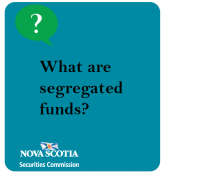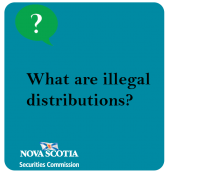Question of the week: How do I check registration?
Submitted by nsscadmin on
At the Nova Scotia Securities Commission we talk about checking registration a lot. We write about it. We Tweet about it. We talk about in presentations over and over. Checking registration is one of the safe guards we promote to anyone looking for, or currently working with an adviser.










